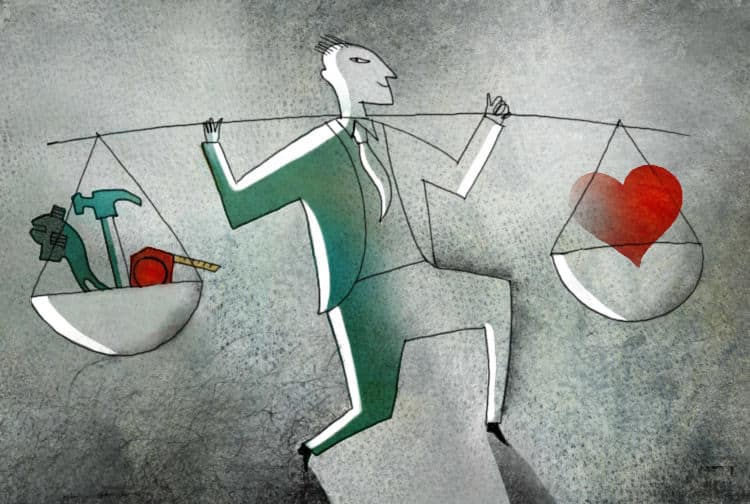Understanding the Dynamics of Power
The term “power” has been thrown around willy-nilly as of late. We see it lobbied about on social media on a regular basis as a premise to excuse, justify, excoriate, or diminish various stances.
I think people have a fundamental lack of understanding about what power is, the forms that it takes, and the avenues through which it’s acquired. Therefore, I thought this article might be useful. Let’s get into it.
There are 10 key arenas of power. Some are intertwined in their function, but they are for the most part distinct. These are as follows:
– Military
– Financial
– Technological
– Social
– Media
– Ecclesiastical
– Institutional
– Sexual
– Information Asymmetry
– Charisma
Military power, obviously, is the power to exert physical force over another person. It’s the most fundamental form of power as it can immediately and directly lead to bodily injury or death, and can compel people to rapidly make decisions against their own self interest. This term traditionally applies to nations, but when we use this term in the context of forms of power, this applies at the micro-social level as well. A larger person can be said to have military power over a smaller person, and be able to use intimidation and unspoken threats of violence to compel others’ behavior.
Financial power is the second most immediate form of power. This is the ability to exert wealth to acquire material advantages other people do not have and, as a result, accelerate success more quickly than them, or hamstring them through competitive use of wealth. It is most typically wielded by creating dependency, such as at a job you hate, but can’t quit due to the material advantages it provides. This, again, applies on a micro-social level as well — it’s why people fight over the privilege to pay a check. It’s a fight over who is dependent. It can be used offensively as well, such as in a scenario where someone slights you, so you buy stock in their workplace and have them fired. Again, financial power is about creating dependency — by making someone dependent on them, that person is able to convince the dependent person to take actions outside their own interests.
Technological power is interesting, as it most readily is a means of accelerating other forms of power, be they military, media, financial, or otherwise. Having access to tools that offer a competitive advantage allows the wielder of technological power to acquire and protect these other forms of power. Having bronze swords against an enemy who has stone clubs provides a military advantage. Having supremacy in hacking, such as the NSA does, generates information asymmetry. Investing in stocks with 21st automated investment systems vs an abacus provides an advantage. On the micro-social level, this could mean the ability to use PowerPoint over a co-worker who cannot.
Social power is another of the key planks of power. Many other forms of power are used in service of social power, in order to cultivate it. In a way, all of them are. At its core is the amount of people willing to act on behalf of your interests by nature of their interest in your success. In today’s world, this is codified — we can easily see a numerical measure of people’s social power on their social media channels. This is closely related to in-group and out-group psychology. It is the perception that one is a valued member of the tribe. Social power can be generated through multiple sources — charisma, financial or technological competence, etc., but the most common means of acquisition are media, charisma, and sexual power.
Media is the most interesting of the powers, because it aligns with the flashiest sectors of our culture. Art, fashion, literature, music, films, video games, journalism, even linguistics and word of mouth, all support the media power, which is used in support of social power. In essence, media power is the ability to widely spread a strong message. Nation states use media power when they spin news to fit their narrative; and your local hardware store uses media power to advertise their brand. Even your local gossip uses media power to spread rumors and control the narrative. Media power is closely connected to social power, but notably distinct from it — whereas social power is about you and the reach of your influence, media power is simply the power to spread a message, using argument and emotional appeal to persuade people to uphold your interests on the strength of the message. Oftentimes this results in social power, but is not, in itself, the same.
Ecclesiastical power is the ability to have your point of view accepted on faith. This can be generated by reliable competence to the point that the competence is no longer questioned or, as the term traditionally refers to, religious faith. The term ecclesiastics comes from Christianity, but this form of power is much more broad. This can be faith in a secular academic institution, or the words of a politician. Simply put, it’s trust. It’s the power parents have over their children before their rebellious stage — the power that everything they say is unquestioned. This can be seen in populations outsourcing their critical thinking faculty to a more powerful entity, in cults, or at the micro level by a person at a party who has knowledge and authority on a subject no one else does. The power of ecclesiastics is that you can be wrong without the consequences of being wrong, and that if you tell someone what the right thing is to do, they’ll take it on faith.
Institutional power is defined by advantages that are acquired through inheritance. These are most commonly hard powers like financial wealth, but may be soft powers as well, such in the case of famous musicians whose children are fast-tracked due to name recognition. This takes the form in society at large of things like legacy admissions to ivy league schools, loans or career advancement from powerful parents, or in-group/out-group bias based on race, nationality, ancestry or political affiliation. This in-group/out-group bias is not limited to race, but could be anything arbitrarily defined by culture — for example, China is a monoculture, and succeeding in China as a foreigner is very difficult; and in Japan there is a caste called the Barukumin which is considered to be simply ‘lower class’, despite no discernible difference in ethnicity, simply due to historical prejudice.
Sexual power is the power of hormonal attraction between humans. We all know the butterflies in the stomach feeling that gets you to agree to things you wouldn’t normally agree to. This is why men will treat Lucy to a free dinner, but not Stacy. It’s why women will orbit around John and ignore Jack. It creates the desire for attention. That desire can be exploited by the person with the sexual power for social privilege, whether that’s a follow on Twitter, filling the audience for their terrible one-man show at the coffee house, or buying them expensive gifts. It facilitates a transfer of one person’s power to another, be it financial, social, or otherwise.
Information Asymmetry is, simply put, knowing something your competitor does not. It’s used in support of acquisition of other forms of power. For example, insider trading is based on information asymmetry. So, too, is the person who knows Danny doesn’t like Stacy, and Stacy is in love with John, but John is secretly in love with Danny. We often colloquially refer to this power as being “plugged in”. The game of poker is a game of information asymmetry, where you try to divine a greater amount of information than your opponent in order to reduce risk in your bet. Imagine how easy a game of chess would be if you knew your opponent’s plan before you started. That’s the power of information asymmetry. It’s why nations invest billions in an infrastructure of spies.
Charisma is, simply put, likability. It’s the trait that evolves into cults of personality. It’s the power to walk into a room and instantaneously be accepted and liked. This is the power most commonly wielded by celebrities and politicians. It’s similar in consequence to sexual power, but unrelated to hormonal sexual attraction — it’s attraction of a different form: personality. Humor, attractiveness, confidence, swagger, fashion, etc., are subsets of charisma, and it’s used to acquire social power.








